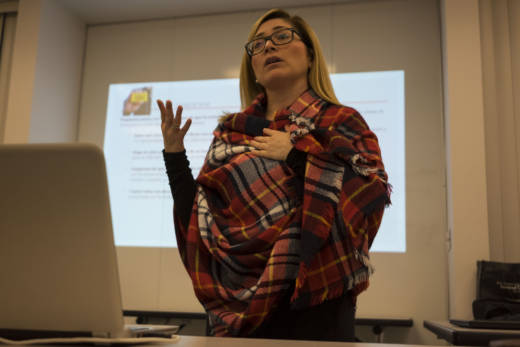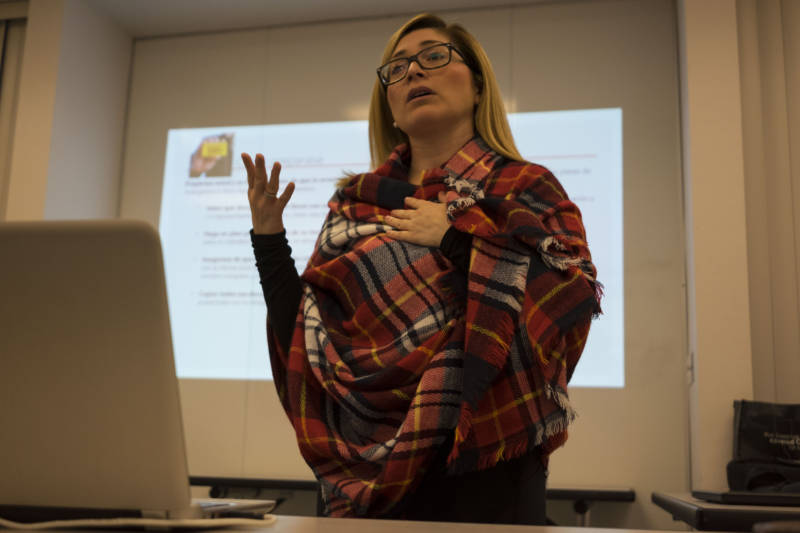Angélica Salceda, an attorney for the ACLU, stands in front of a small audience at a public library in Mendota.
She’s leading a “Know Your Rights” event for immigrants in the small farmworker town about an hour west of Fresno. The aim is to educate immigrants about their constitutional rights so they know what to do if they’re confronted by immigration officials.
Attorneys and immigration advocates have been hosting these events for years, but they’ve ramped up efforts since President Trump took office.
Many of those in attendance are nervous that they could be targeted for deportation under President Trump’s aggressive immigration policies.




